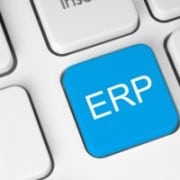Why organizations should upgrade their ERP systems
Enterprise Resource Planning (ERP) systems are a part of the day-to-day operations of most every business. More and more enterprises each day are finding out the benefits ERP can bring. Even current ERP users know their legacy systems may need an upgrade and now is the best time than any to upgrade your ERP systems. Mark Vivian, CEO of independent Oracle Managed Services provider Claremont, shares an article on IT Pro Portal a number of elements to consider when enterprises upgrade their ERP systems.
- New features – “Inevitably there will be new features to improve functionality in the latest releases of ERP systems. Additionally, there are a whole host of new features in each application to consider.”
- Customizations – “Nearly all ERP systems are customized. Businesses need to be sure they understand the purpose of each customization, whether they can be retired or replaced by new functionality and what the impact of moving them to new releases will entail.”
- Infrastructure – “As part of ensuring that the path to the “to-be” upgraded technology stack is understood, organizations need to examine what infrastructure they need to support the new version of the software. It could be a prime opportunity to move “on premise” ERP solutions to an infrastructure cloud, in line with a “cloud first” strategy. According to Claremont’s latest managed services survey, 69 percent of Oracle EBS users currently host on physical servers rather an infrastructure cloud, but around 40 percent are looking to move to cloud to enjoy the flexibility it offers.”
- Database – “If you are running Oracle Linux prior to version 7 then an operating system upgrade will be required before upgrading the database. With Premier Support for Oracle Linux 6 finishing in March 2021, many organizations will be looking to upgrade soon or will risk running on another unsupported platform.”
With multiple ERP systems to consider, now is a good time to start planning for the future and consider upgrades to server, database, infrastructure and vendor partners.


